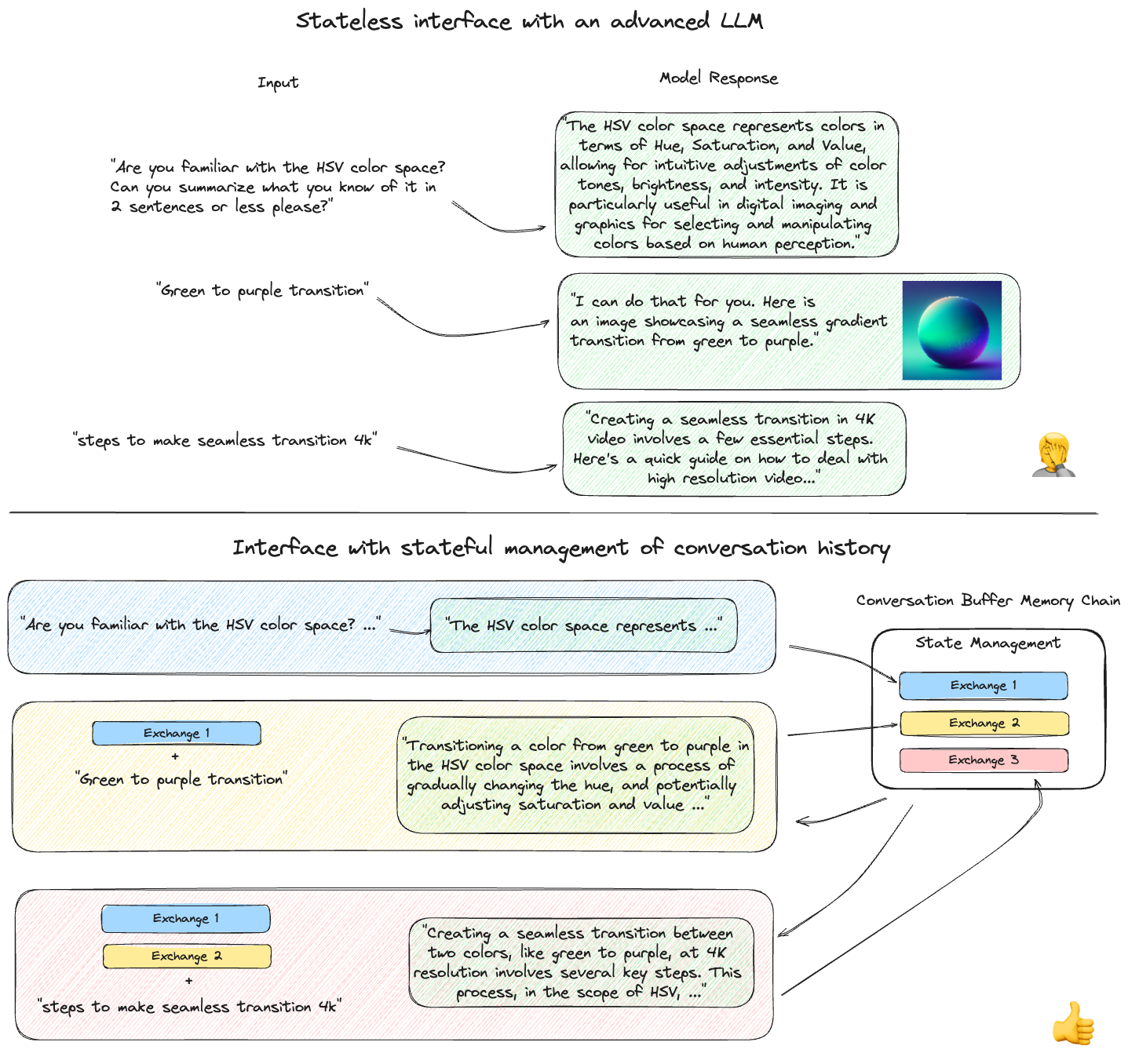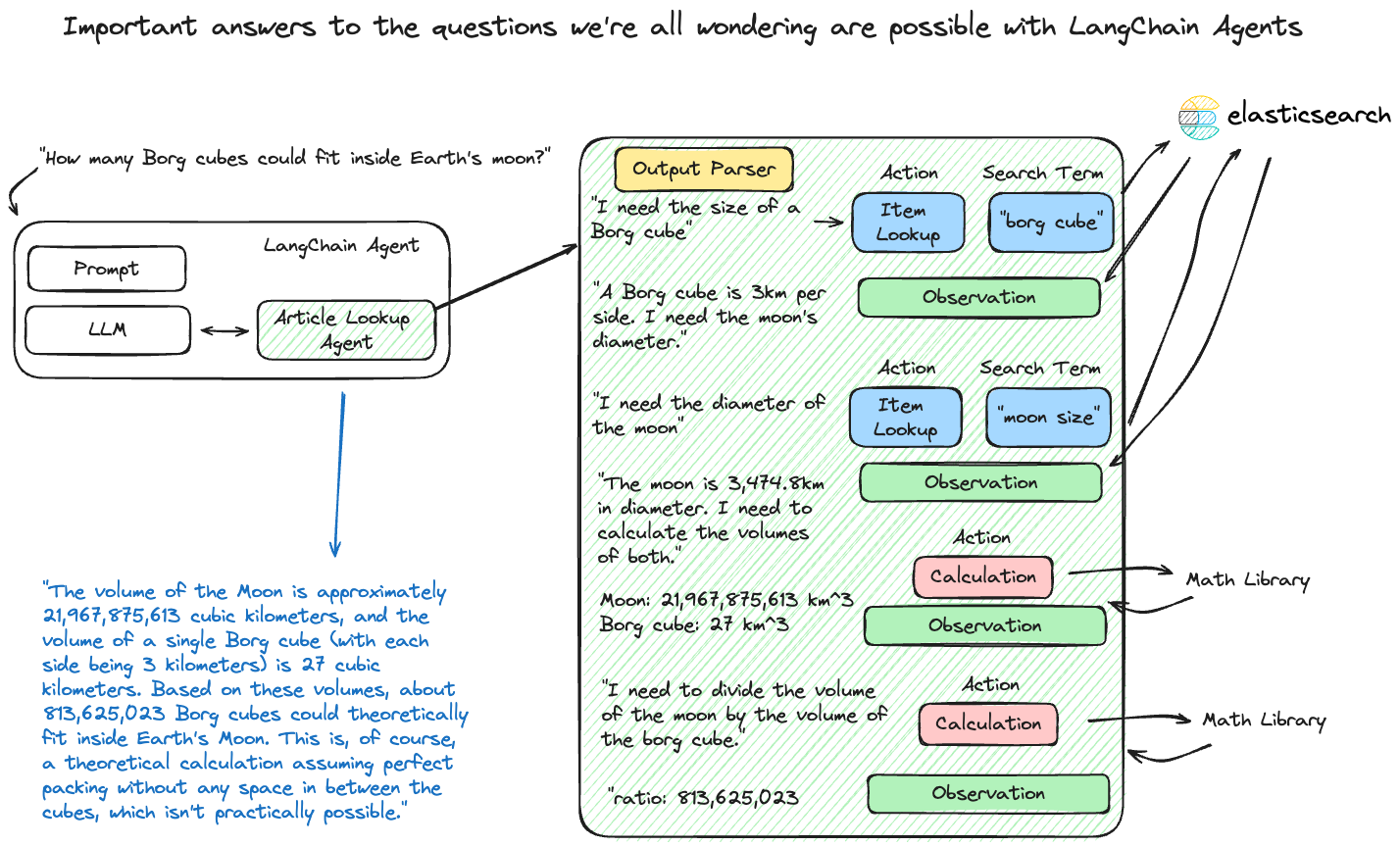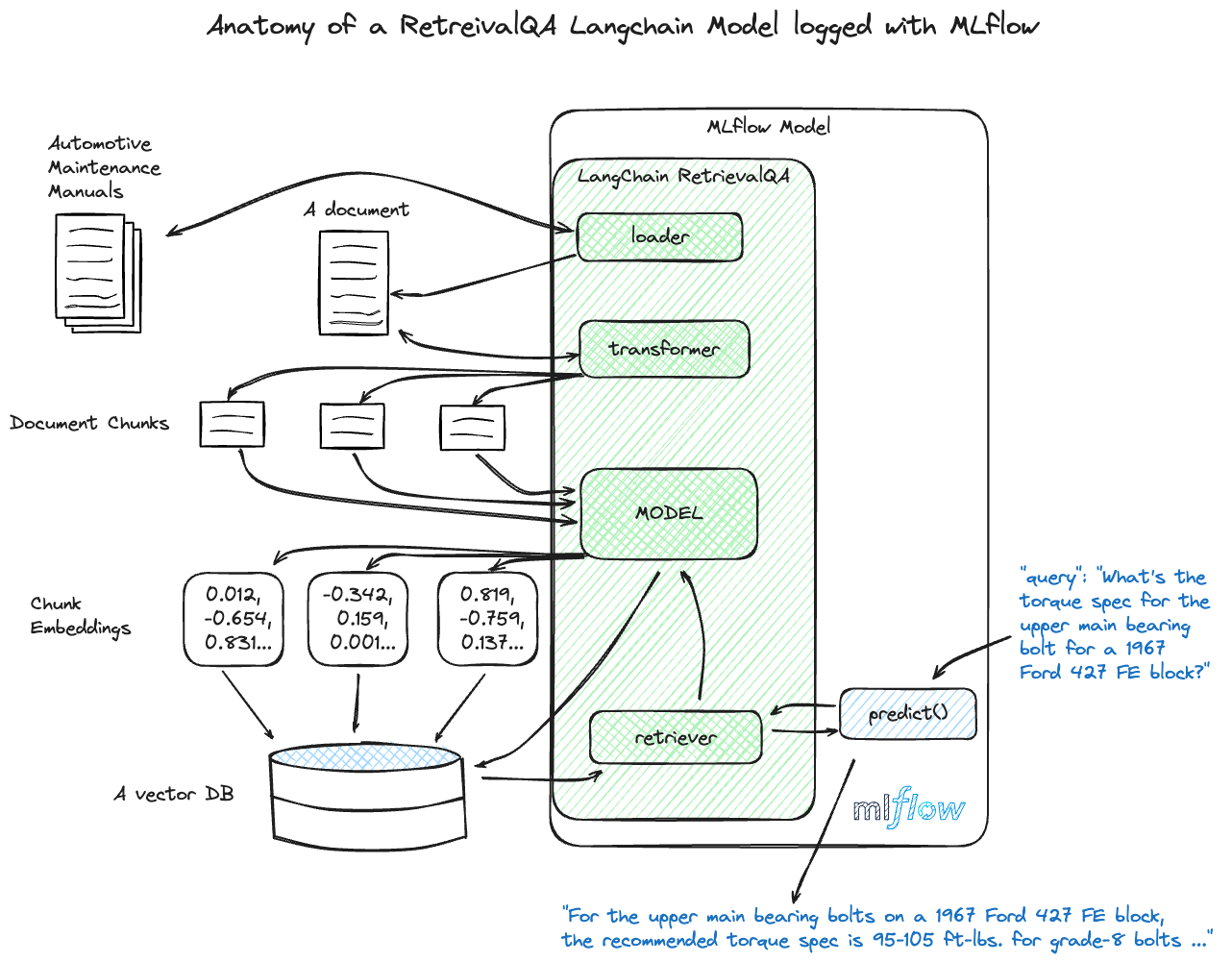MLflow LangChain Flavor
Attention
The langchain flavor is under active development and is marked as Experimental. Public APIs are
subject to change, and new features may be added as the flavor evolves.
Welcome to the developer guide for the integration of LangChain with MLflow. This guide serves as a comprehensive resource for understanding and leveraging the combined capabilities of LangChain and MLflow in developing advanced language model applications.
What is LangChain?
LangChain is a versatile framework designed for building applications powered by language models. It excels in creating context-aware applications that utilize language models for reasoning and generating responses, enabling the development of sophisticated NLP applications.
Supported Elements in MLflow LangChain Integration
Warning
The Langchain’s new chat interfaces such as ChatOpenAI, AzureChatOpenAI, are not supported in MLflow due to a limitation in deserialization. Please use the legacy counterparts for these models such as langchain.llms.OpenAI, langchain.llms.AzureOpenAI, or create a custom Pyfunc model.
Why use MLflow with LangChain?
Aside from the benefits of using MLflow for managing and deploying machine learning models, the integration of LangChain with MLflow provides a number of benefits that are associated with using LangChain within the broader MLflow ecosystem.
MLflow Evaluate: With the native capabilities within MLflow to evaluate language models, you can easily utilize automated evaluation algorithms on the results of your LangChain application’s inference results. This integration facilitates the efficient assessment of inference results from your LangChain application, ensuring robust performance analytics.
Simplified Experimentation: LangChain’s flexibility in experimenting with various agents, tools, and retrievers becomes even more powerful when paired with MLflow. This combination allows for rapid experimentation and iteration. You can effortlessly compare runs, making it easier to refine models and accelerate the journey from development to production deployment.
Robust Dependency Management: Deploy your LangChain application with confidence, leveraging MLflow’s ability to manage and record all external dependencies. This ensures consistency between development and deployment environments, reducing deployment risks and simplifying the process.
Capabilities of LangChain and MLflow
Efficient Development: Streamline the development of NLP applications with LangChain’s modular components and MLflow’s robust tracking features.
Flexible Integration: Leverage the versatility of LangChain within the MLflow ecosystem for a range of NLP tasks, from simple text generation to complex data retrieval and analysis.
Advanced Functionality: Utilize LangChain’s advanced features like context-aware reasoning and dynamic action selection in agents, all within MLflow’s scalable platform.
Overview of Chains, Agents, and Retrievers
Chains: Sequences of actions or steps hardcoded in code. Chains in LangChain combine various components like prompts, models, and output parsers to create a flow of processing steps.
The figure below shows an example of interfacing directly with a SaaS LLM via API calls with no context to the history of the conversation in the top portion. The bottom portion shows the same queries being submitted to a LangChain chain that incorporates a conversation history state such that the entire conversation’s history is included with each subsequent input. Preserving conversational context in this manner is key to creating a “chat bot”.
Agents: Dynamic constructs that use language models to choose a sequence of actions. Unlike chains, agents decide the order of actions based on inputs, tools available, and intermediate outcomes.
Retrievers: Components in RetrievalQA chains responsible for sourcing relevant documents or data. Retrievers are key in applications where LLMs need to reference specific external information for accurate responses.
Getting Started with the MLflow LangChain Flavor - Tutorials and Guides
Introductory Tutorial
In this introductory tutorial, you will learn the most fundamental components of LangChain and how to leverage the integration with MLflow to store, retrieve, and use a chain.
Advanced Tutorials
In these tutorials, you can learn about more complex usages of LangChain with MLflow. It is highly advised to read through the introductory tutorial prior to exploring these more advanced use cases.
Download the LangChain Retriever Notebook
Detailed Documentation
To learn more about the details of the MLflow LangChain flavor, read the detailed guide below.
View the Comprehensive GuideFAQ
I can’t save my chain, agent, or retriever with MLflow.
Serialization Challenges with Cloudpickle: Serialization with cloudpickle can encounter limitations depending on the complexity of the objects.
Some objects, especially those with intricate internal states or dependencies on external system resources, are not inherently pickleable. This limitation arises because serialization essentially requires converting an object to a byte stream, which can be complex for objects tightly coupled with system states or those having external I/O operations. Try upgrading PyDantic to 2.x version to resolve this issue.
Verifying Native Serialization Support: Ensure that the langchain object (chain, agent, or retriever) is serializable natively using langchain APIs if saving or logging with MLflow doesn’t work.
Due to their complex structures, not all langchain components are readily serializable. If native serialization is not supported and MLflow doesn’t support saving the model, you can file an issue in the LangChain repository or ask for guidance in the LangChain Discussions board.
Keeping Up with New Features in MLflow: MLflow might not immediately support the latest LangChain features immediately.
If a new feature is not supported in MLflow, consider filing a feature request on the MLflow GitHub issues page.
I’m getting an AttributeError when saving my model
Handling Dependency Installation in LangChain and MLflow: LangChain and MLflow do not automatically install all dependencies.
Other packages that might be required for specific agents, retrievers, or tools may need to be explicitly defined when saving or logging your model. If your model relies on these external component libraries (particularly for tools) that not included in the standard LangChain package, these dependencies will not be automatically logged as part of the model at all times (see below for guidance on how to include them).
Declaring Extra Dependencies: Use the
extra_pip_requirementsparameter when saving and logging.When saving or logging your model that contains external dependencies that are not part of the core langchain installation, you will need these additional dependencies. The model flavor contains two options for declaring these dependencies:
extra_pip_requirementsandpip_requirements. While specifyingpip_requirementsis entirely valid, we recommend usingextra_pip_requirementsas it does not rely on defining all of the core dependent packages that are required to use the langchain model for inference (the other core dependencies will be inferred automatically).
I can’t load the model logged by mlflow langchain autologging
Model contains langchain retrievers: LangChain retrievers are not supported by MLflow autologging.
If your model contains a retriever, you will need to manually log the model using the
mlflow.langchain.log_modelAPI. As loading those models requires specifying loader_fn and persist_dir parameters, please check examples in retriever_chainCan’t pickle certain objects: Try manually log the model.
For certain models that langchain does not support native saving/loading, we pickle the object and save it, while it requires cloudpickle version to be consistent when saving/loading the model, as well as PyDantic version to be 2.x. Try manually log the model with
mlflow.langchain.log_modelAPI.


